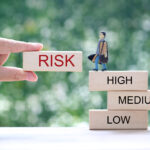The risk of falling increases as you age, as does the risk of sustaining a serious injury when you fall. One in four seniors, or 36 million people, fall each year, according to the Center for Disease Control and Prevention (CDC). Over 32,000 people die each year as a result of this.
Which medications increase your risk of falling? BestLifeOnline.com has talked to a pharmacist:
“These falls can be related to multiple factors, but are often associated with medications that can affect balance and coordination,” says Mary Cait Smith, PharmD, a clinical pharmacist at The University of Toledo Medical Center in Toledo, Ohio. “The risk of experiencing a fall related to a medication increases with age and the number of medications taken,” Smith told Best Life.
High blood pressure is often controlled with daily medication. According to Smith, certain blood pressure medications can increase the risk of falling.
The risk of experiencing a fall related to a medication increases with age and the number of medications taken
Mary Cait Smith, The University of Toledo Medical Center
The risk can be mitigated by monitoring your condition and medications with your doctor, she says. “If you are taking blood pressure-lowering medications, it can be helpful to keep a log of blood pressure readings so that your doctor can see if you are within your goal range,” Smith advises. “You should work closely with your doctor and pharmacist to make sure you are taking these medications at the correct times and at the correct doses, which can help reduce these risks. If you are consistently having low readings or experiencing side effects, you should contact your doctor. It is important to not stop taking these medications without first discussing with your doctor.”






